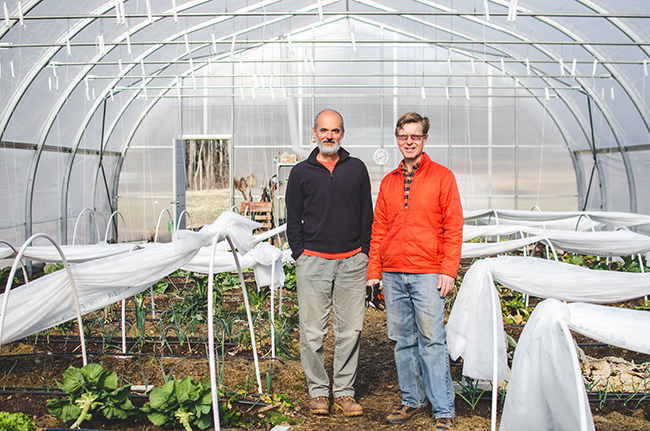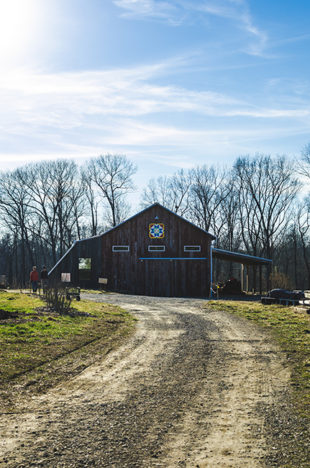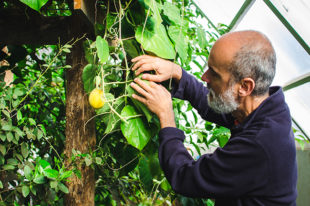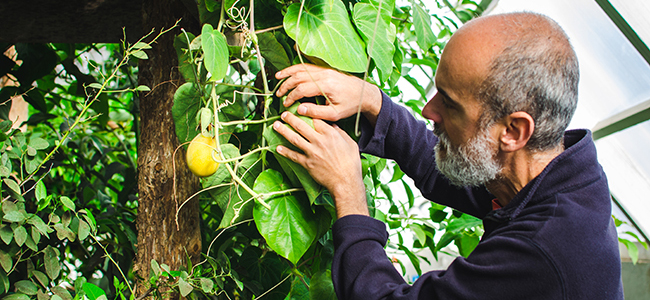
Juan Carlos Arango (left) and Robert Frew in their hoop house. Photo by Aubrey Dunnuck
BY MIKE LEONARD

The barn at Sobremesa Farm. Photo by Aubrey Dunnuck
There is simply not an adequate English translation for the Spanish word sobremesa, says Robert Frew, co-owner of Sobremesa Farm.
“It’s a term that refers to the time after a meal when everyone sits around the table and shares stories, has a drink, and people connect with each other,” he explains. “That’s why we named the farm that. It goes back to creating a sense of community.”
There’s not a place in the Bloomington area that’s quite like Sobremesa Farm, either. It’s a permaculture endeavor near Unionville in northern Monroe County where Frew and his partner, Juan Carlos Arango, grow avocados, dragon fruit, oranges, lemons, and tangerines, as well as produce more familiar to this area, including lettuce, tomatoes, squash, blueberries, strawberries, peppers, carrots, and onions.
“Permaculture utilizes a lot of organic methods, but it goes beyond that. It’s more about regenerative agriculture that restores the soil to a healthy state,” says Frew. A key component is the use of hugel mounds, which start with a bottom layer of woody debris covered with layers of other organic material and are topped with topsoil. “The topsoil allows you to grow annual crops immediately,” he says. “But as time goes by and the organic material begins to decompose, you have a rich ecosystem that will support perennials that sustain themselves year after year.”
Frew and Arango have constructed a greenhouse, a hoop house, ponds to create a sustainable water source for their farm, and a cistern to capture rain-water. They’ve also planted various native plants on hillsides to slow down rain runoff, enabling the soil to absorb the moisture and reduce the sediment that flows into Lake Monroe.
And then there’s the farmhouse that has become the centerpiece for Sobremesa: an 1850 structure originally built in northern Indiana, disassembled, and reconstructed in Monroe County. Frew says it adds ambiance but also will serve as a meeting place.
Creating Sobremesa Farm has been “a huge learning curve” for its owners. Frew, 56, is the interpreter coordinator for Central Indiana Interpreting Service, and Arango, 54, is a Renaissance musician who plays the dulcian (a forerunner of the bassoon) and earned an early music performance degree from the Indiana University Jacobs School of Music.
“Part of the reason for doing this was just to be responsible stewards of the land and to demonstrate you can grow food and be environmentally responsible,” Frew says. “And part of it was to build a sense of community where it’s been lost.”

A Chinese cabbage plant; the barn at Sobremesa Farm. Photo by Aubrey Dunnuck

Arango with a granadilla, the edible fruit of the passionflower. Photo by Aubrey Dunnuck











